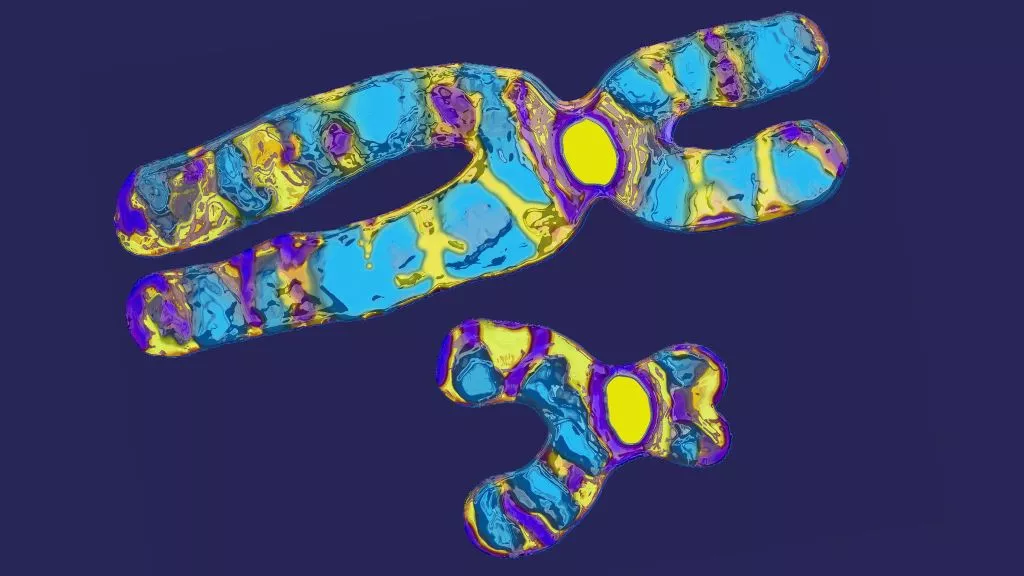The review remembered in excess of 200,000 people for the U.K.

Most commonly, females carry two X sex chromosomes and males carry an X and a Y. (Image credit: BSIP / Contributor via Getty Images)
Upwards of one of every 500 men might convey an additional sex chromosome — either a X or a Y — yet not many of them probably have some familiarity with it, another review proposes.
The examination, distributed June 9 in the diary Genetics in Medicine(opens in new tab), included information from in excess of 207,000 men who gave data to the U.K. Biobank, a vault of hereditary and wellbeing information from a portion of 1,000,000 U.K.- based members. Ordinarily, guys convey one X-and one Y-molded sex chromosome in every one of their cells, yet among the review members, there were 213 men who conveyed an additional X chromosome and 143 that had an additional Y.
Not very many of these men either revealed being determined to have a chromosomal irregularity or had such an irregularity noted in their clinical records: Of the XXY men, just 23% had a known determination, and only 0.7% of the XYY men had a finding. (The possible side effects of having an additional Y chromosome can be extremely unobtrusive, which may fairly make sense of the distinction in determination rates, as per the Genetic and Rare Diseases Information Center(opens in new tab).)
“We were amazed at how normal this is,” Dr. Ken Ong, a pediatric endocrinologist in the Medical Research Council (MRC) Epidemiology Unit at the University of Cambridge and a co-senior creator on the review, told The Guardian(opens in new tab). “It had been believed to be really interesting.”
Past assessments recommended that around 100 to 200 men out of each 100,000 are XXY, as per the National Human Genome Research Institute(opens in new tab), and an expected 18 to 100 out of each 100,000 were believed to be XYY, the creators noted in their report.
Altogether, around 0.17% of the review members had an additional sex chromosome, or around one of every 580. In any case, the rate saw in the review may be somewhat lower than that among everyone, the review creators noted in their report. That is on the grounds that U.K. Biobank volunteers will quite often be more grounded than everyone and have a below the norm occurrence of hereditary circumstances. In view of this, the creators gauge that around one of every 500 men, or 0.2%, in everyone convey an additional sex chromosome.
Having additional sex chromosomes can raise the gamble of specific ailments, and this expanded gamble appeared to be reflected in the Biobank volunteers’ wellbeing information, the analysts announced.
For example, Klinefelter disorder (KS) — or having an additional X chromosome as a male — has been connected to regenerative issues, including fruitlessness and deferred pubescence, as indicated by the National Human Genome Research Institute. In the review, XXY men’s pace of childlessness was multiple times higher than that of XY men, and they were multiple times bound to have begun pubescence late, as per a statement(opens in new tab).
A condition called 47,XYY disorder — or having an additional Y chromosome as a male — was not connected to an expanded pace of conceptive issues in the impacted review members, the creators revealed. All things considered, previously, the condition has been connected to different side effects, including learning handicaps, defers in procuring discourse and coordinated movements, and abnormally low muscle tone, as per the Genetic and Rare Diseases Information Center. These side effects were not explicitly evaluated in the Biobank study.
In any case, the examination uncovered a potential connection between additional sex chromosomes and different circumstances. Contrasted and XY men, both the XXY and XYY men showed higher paces of type 2 diabetes; plaque develop in the walls of the conduits (atherosclerosis); blood clusters in the veins (venous apoplexy) and lung supply routes (pneumonic embolism); and persistent obstructive aspiratory sickness, which impedes wind stream to the lungs.
“It is hazy why both KS and 47,XYY ought to show striking similitudes in giving considerably higher dangers for some illnesses in like manner,” the creators wrote in their report. The components driving this expanded gamble should be investigated in ongoing examinations, they said.
The review is restricted in that it just included men of European lineage who were between the ages of 40 and 70. Be that as it may, “our review is significant in light of the fact that it begins from the hereditary qualities and educates us regarding the potential wellbeing effects of having an additional sex chromosome in a more seasoned populace, without being one-sided by just testing men with specific highlights as has frequently been finished previously,” Anna Murray, an academic administrator of human hereditary qualities at the University of Exeter Medical School and co-senior creator of the review, said in the proclamation.
Initially distributed on Live Science.
